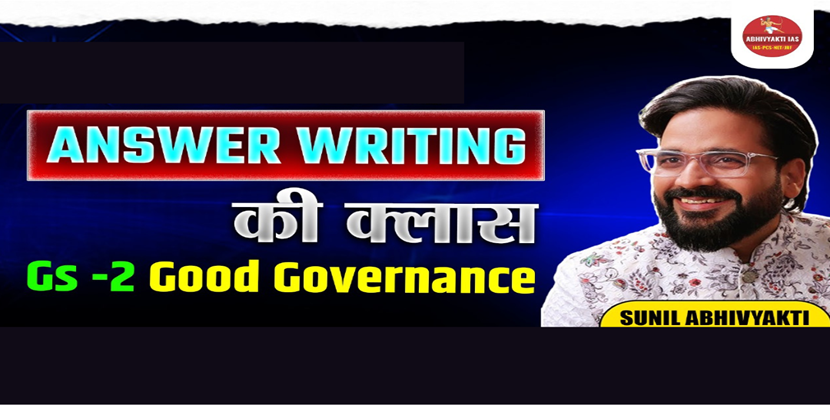This skill is determines success at different competitive exams, such as UPSC, State PSCs, UGC-NET, and other assessments. Answer writing is not about merely knowing the content, but more importantly, how it is expressed clarity, concision, and effectiveness determine a good score. Writing an answer is an art, just like any other art: it requires practice, strategy, and refinement.
Elements of Effective Answer Writing
Understanding the Question: First of all, to write a good answer, understand exactly what is asked. Break down the question to identify key terms such as "discuss," "analyze," and "compare," and make sure you address all parts of your query.
Organization of Your Answer: Clear organization of an answer is important for clarity. Answers should be structured typically in this way:
Introduction: A short description or context that explains the question, defines terms, or clarifies the subject.
Main Body Divide the body into subsections and write on different aspects of the question. Use headings or bullet points for better readability.
Conclusion: Summarize your main points and end with a concluding remark that reflects the core of your argument or analysis.
Supporting with Facts and Examples: Wherever applicable, support your statements with relevant facts, statistics, or examples. In the exams of UPSC or UGC-NET, current affairs or references to theories can be used to make your answer stronger.
Objectivity Balance: In the subjective exams, one should keep objectivity while presenting their analysis. Balanced views on the question are expected by keeping in mind the points that others may advance where that is necessary.
Write regularly: Improving is all about practice. Spend some time of the day writing answers on several topics, particularly those falling under your syllabus.
Time Management: In exams, you are placed in a position to answer multiple questions within limited time. Try writing answers within a limited time frame and thus improve your speed and efficiency.
Improve: As you write out, review the answers. You may check if you can make some improvements in certain areas concerning clarity, structure, or the depth of your content is saying. You will also find it very helpful when getting peer feedback or coaching from mentors.
Use Diagrams and Flowcharts: For the questions where detailed explanations are required, diagrams, flowcharts, and tables can improve your answer. They break the monotony and try to explain difficult information in a simplified form.
Refer to Model Answers: Go through the model answers of the toppers or suggested answers in guidebooks. This will provide you with an idea of the expected style of writing, depth, and presentation.
Answer writing is an art, and practice alone can achieve mastery over it. It is not so much about knowing the content but about how effectively you can deliver it within the constraint of time and word limit. Whether you are preparing for UPSC, State PSCs, or academic exams like UGC-NET, improving answer writing ability will go a long way in making the difference in your success. Clarity, structure, and precision should be followed, and the core thing to remember is that practice is the mother of all perfection.

Abhivyakti IAS
-1-1-2.png)
-1-2.png)


Leave a Comment